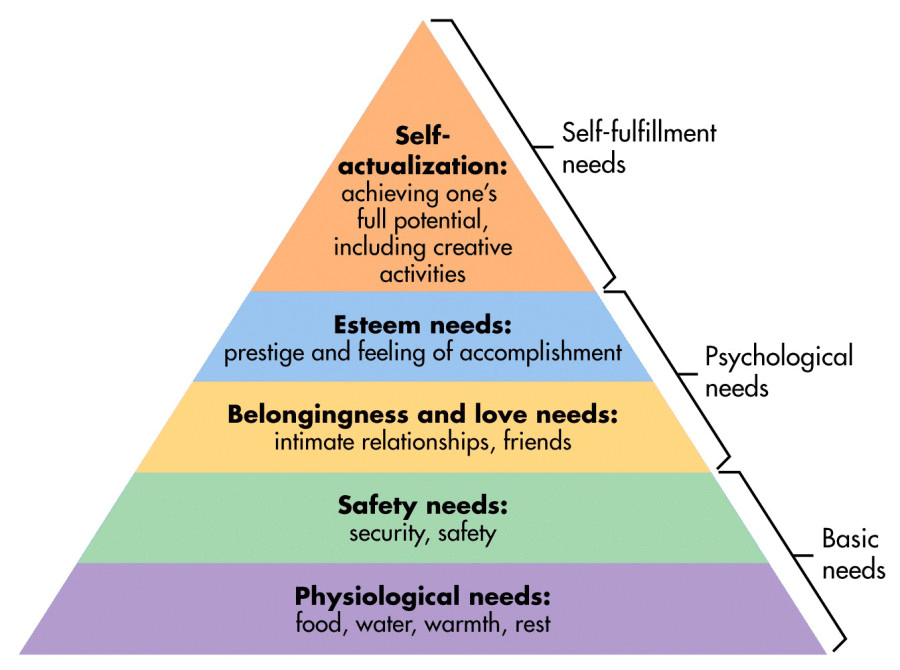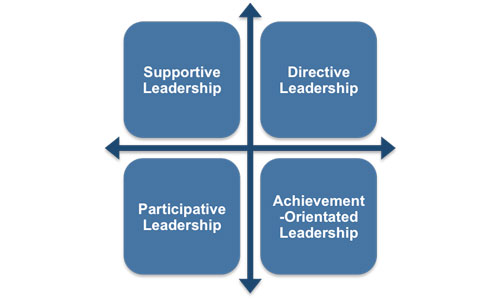Question :
This assessment will cover the following questions:• Analyse the impact of culture, politics and power on the behaviour of others in an organisational context.
• Evaluate how to motivate individuals and teams to achieve organisational objectives BBC.
• Generate an understanding of how to cooperate effectively with others in BBC.
• Implement concepts and philosophies of organisational behaviour to a given business situation for BBC.
Answer :
INTRODUCTION
Organisational behaviour is defined as a study of knowledge and its application that determines act of behaviour of individual in the organisation (Dinh and et.al., 2014). Thus, in this report BBC has been taken into consideration. It is the British Broadcasting Corporation and is headquartered in Westminster, London.
In the following report, culture, power and politics of organisation influencing individual team and performance that influences the team and performance of BBC has been analysed. In addition to this, motivation theory and tuck man theory of team development has also been discussed in this report. Furthermore, this assignment also highlights on the concepts and philosophies of organisational behaviour has been discussed taking path goal theory into consideration.
TASK 1
P1. Organisational culture, power and political behaviour of managers affect behaviour of staff within BBC.
Culture, power and politics in any organisation plays significant role (Dooley, 2014). Thus, the culture, power and political behaviour in BBC that affects staff has been discussed as per below context-
Culture
Organisational culture is termed as norms, values and beliefs and also assumptions that are practiced in a particular organisation. This further helps in bringing stability and also control within BBC.
The culture of BBC has been discussed in four different types that includes the following-
- Power- In this type of culture, power is held by few individuals. They are the one who spreads their influence through the whole organisation. In this there are rules and regulations as the one having power will decide about all happenings in BBC. Employees of cited organisation are judged according to achievement rather than their actions.
- Role- If there is availability of such culture in BBC, they will have to follow certain rules. In this culture, the role or position of a person determines the power in BBC. The decision making in this culture is slow and takes less amount of risks.
- Task- this type of culture is formed when they need to accomplish a common objective or a common task. Task plays an important role, so power within a particular team of BBC will shift depending on team members and status of problem and project.
- Person- In person culture, individuals feel themselves as the most unique and important to BBC. The organisation that follows this type of culture is nothing but the collection of individuals that happens to be working for organisation.
Thus, it depends on type of culture that is basically created in an organisation. It can also have positive and also negative effect on performance of an employee. Thus, in such type of cultures, employees of BBC are therefore committed in order to achieve goals and thus have a positive effect on the overall performance of an organisation.
Hofstede culture
- Power distance index: This dimension express degree in which powerful members of a society accept expect power which is distributed unequally in BBC.
- Individualism vs. collectivism: According to this culture, high side of dimension called individualism that can be defined as preference for creating social network which taken by individual to take care of themselves in BBC.
- Masculinity Vs. femininity: Masculinity side of this dimension represent that preference in society will be develop for achievement, assertiveness and material reward for success.
- Uncertainty avoidance index: Uncertainty avoidance dimension express that degree to which members of society feel uncomfortable with uncertainty and ambiguity in BBC.
- Long term orientation vs. short term normative orientation: In the society, this culture successfully develop to maintain link with own past to deal with challenges. However, in short term normative vs. pragmatic outcomes considered successfully.
- Indulgence vs. restraint: Indulgence also stands for society that allow relatively free gratification for natural human drives that are related with enjoying life.
Power
The influence of power in BBC has been discussed in five forms as per below context-
- Coercive power- it is based upon the idea of coercion that means forcing someone to do particular work against their will of doing it. It is associated in a positive way in BBC with the behaviour that is punitive. And negative that is associated with conditional reward. Thus, it leads to problem as often.
- Reward power- this type of power mainly involves individuals ability in order to delegate the matters they may not wish in doing to other people and also reward them for this. It is based on the idea as employees do things in more inclined way if they get something in return in form of raises, promotions or compliments. The main problem is that if employees of BBC do not get fair price the power may get weakened.
- Legitimate power- to reward and punish the employees as per the task can be seen as a legitimate part. Thus, this is based usually on a role. It can easily overcome when someone in BBC loses the title or position. This act as the weaker form in order to persuade and convince people.
- Referent power- This type of power acts as the biggest responsibility. It is the power that comes from another person that is liking or wants to be like the employee of their choice. This is wielded up by the celebrities. Those that have referent power can use it for coercion.
- Expert power- expert power refers to the in-depth skills and knowledge someone has that is required to other person in BBC. It is the power of specialist.
Thus, power is used by the manager in either positive or negative way. This use of power can either motivate employees of BBC or may create threat among them.
Politics
Employees of BBC who learns in order to navigate the politics are the most productive ones in comparison to others. Thus, to encourage productivity, BBC has easy and top culture politics that is easy for employees to understand it. Thus, this makes easy way for workers to find answers for problems and find maximum time in producing good quality work with help of establishing clear policies and chain of command. Therefore, positive politics helps in preventing conflicts that results in low productivity.
If there is a climate of negative politics in BBC, then it would result in huge conflicts. Further, if the there is lack of clear policies then it would create difficulties in finding solution and will require more time instead of completing work in high quality manner.
Thus, it leads in lowering the output of an individual and eventually affects the productivity and efficiency of an organisation. It has been commonly observed that individual that gives prior attention in playing politics pays less attention towards their work.
M1. Critically analysing culture, politics and power influencing individual, team behaviour and performance.
Thus, from above it has been analysed that power, culture and politics plays critical role in influencing individual behaviour and team performance of BBC. This role that is played is right from governing the decisions that are being made to interaction of employees with one another. It mainly depends on which type of power or politics is used by the individual of BBC. This behaviour is that which BBC can not ignore.
Students may also like to read: Improving employability skills travelodge hotel
TASK 2
P2. a. Explaining content and process theories of motivation.
Theories of Motivation are mainly divided in two parts.:-
1) Content Theories
2) Process Theories
The Content Theory mainly focus on "WHAT". It means, what are the needs of an employee that are required to be satisfied through which employee will get motivated (Kitchin, 2017). On the other hand Process Theory mainly focus on "HOW". It means, what methods should be followed or adopted just to satisfy the needs of an employee in the best possible way.
Reason being, in every organisation, every employee is having some sort of needs that are required to be driven by the organisation just to achieve the desired output and also with the motive of keeping the employee engaged in the organisation.
The motivational needs of an employee could be in any respect:- it could be monetary or non - monetary. It could be anything and in any form.
The Content Theory includes:-
- Maslow's Need Hierarchy Theory
- Alderfer's ERG Theory
- Mclleland's Achievement Theory
- Herzberg's Two - Factor Theory
 Now, if we talk about BBC i.e. Business Broadcasting Channel then, it's using Maslow's Need Hierarchy Theory. The organisation has focused on the completion of Basic/Physiological Needs of its employees by providing them home for shelter and employment in the organisation just to survive.
Now, if we talk about BBC i.e. Business Broadcasting Channel then, it's using Maslow's Need Hierarchy Theory. The organisation has focused on the completion of Basic/Physiological Needs of its employees by providing them home for shelter and employment in the organisation just to survive.
After that comes Safety and Security Need. In this case BBC, is providing its employees a complete safety in the work culture and fulfilling their need of security in the organisation. Reason being, every person who is working in an organisation would want to be secured at the work place in the company. So, company plans for an insurance policy for all those employees who are working with it as a team for completion of safety need.
Security Need involves financial security, health and well being just to make the employee feel fully secured against any mishaps during the office hours.
Next comes, Belonging Needs. To fulfil this need of employee BBC used to organize some sort of cultural events; meetings and get-together functions in the office just to promote social and informal behaviour of employees in the office.
The second last level is Esteem Need. In BBC, the organisation is giving appreciation to its employees when they are giving their best and are being noticed by others. The organisation gives honour and respects that employee when, that employee proves to be an asset for the organisation.
Finally, the last need that arise over here is Self-Actualization Need. Here, in this need the organisation gives his/her employee an opportunity to realize where he or she currently, is and where they can reach by doing better.
The Process Theory includes:-
- Skinner's Reinforcement Theory
- Victor Vroom's Expectancy Theory
- Adam's Equity Theory
- Locke Goal Setting Theory
BBC is following Victor Vroom's Expectancy Theory. Here, the theory runs on the base of three factors altogether and they are:- Expectancy, Instrumentality and Valence which finally results in Motivation.
First comes here is Expectancy. In BBC, if an employee is making effort on a particular task then, he expects his success.
Next comes here is Instrumentality. It is based on expectancy somehow reason being it works as connection between activity and goal.
Finally, Valence it says whether the person is valuing, the reward over here or not. In BBC its works.
Now, when these all factors are multiplied the outcome is Motivation in Employee which is reflected in his performance.
P2. b. Improved levels of motivation within BBC helps in achieving organisational goals.
Motivation is important as it allows management in meeting the goals of the company (Mahembe and Engelbrecht, 2014). If working environment of BBC is not motivated, then the company may lead to risk factors or position. Thus, there are many reasons that leads motivation towards the success of organisation.
- Motivated employees leads in high volume of productivity that helps the BBC to achieve high level of outputs.
- It also increases the commitment of employee that will help in generating the best effort in a particular task allocated to them.
- This also facilitates employees of BBC in reaching their personal goals and also facilitates the self development of individual. This helps in achieving organisational objectives that has been targeted.
M2. Critically evaluating the influence of behaviour of others
Motivation is that force which leads employees towards performance (Mester, Andrews, Allen and Chiozzi, 2018). By referring theories of motivation, it has been analysed that if someone is being motivated than they are trying hard to achieve goal or certain level of performance that leads to goal directed behaviour. Several theories view the behaviour of motivation in order to satisfy the needs. Thus, due to this approach, manager of BBC will be benefited by understanding about need of people so that they can easily understand their actions and manage it accordingly.
D1. Critically evaluating relationship between culture, politics, power and motivation enabling team and organisation to succeed by providing recommendations.
Thus, it has been critically evaluated that it becomes important to motivate employees by valuing them in understanding their problem and also try to understand it and offer opportunities accordingly for growth and development. BBC must make employees part of their organisation. Furthermore, culture, politics, power and motivation is important to take BBC towards success and make it reach the boost. For this they must,
- Take pride in their work
- Displaying high level of commitment
- Customer orientation etc.
TASK 3
P3. a. Identifying and explaining types of team and why they are important.
Team is defined as a group of members or people that has a full set of skills that are complimentary in order to complete a particular task or project that has been allocated to them (Moerdyk and et.al., 2015). Thus, different types of teams has been discussed as per below context-
- Functional- Functional teams are permanent and includes same department members that has different responsibilities. It is found in company having traditional project management. This is important in BBC as it makes the project management process easy.
- Problem solving- this team is temporary based where people from different department comes with variety of skills and knowledge and gives permanent solution for a particular problem. This is important as it helps BBC in solving difficult problems permanently.
- Project- this are those people who work collectively towards sharing goals. It allows structuring their work in specific, measurable and time constrained way. This helps in achieving goals easily.
- Virtual- This teams mainly communicates online with various conferencing technologies. They can easily access group projects by communicating with every member from anywhere they are. This is very significant for BBC as they can make their work done in limited time.
Teamwork plays very significant role as it promotes workplace synergy. This also helps everyone in sharing their goals, cooperation and encouragement which basically provides workplace synergy. This leads team member to feel greater sense in terms of accomplishment and are collectively responsible for outcomes that has been achieved. This later leads all individuals to work at higher level.
Tuckman theory
- Forming: In this stage, group of members are high depend on leader for guidance and direction. With little agreement in team, all members getting roles and responsibilities to accomplish purpose and objectives.
- Storming: Decisions come easily in the group that helps to whole team for particular position and they attempt to establish relationship in a group of BBC.
- Norming: Agreement and consensus largely forms among team members so that they are respond to facilitate by leaders. Roles and responsibilities are clear and accepted to take big decision in BBC.
- Performing: In this and last stage, team is more strategically aware so that they know clearly about what they are doing. Team also shared vision so that there is no interference or participation from leader. Focus of group is on achieving goals so that decisions are accomplished to take team positioning.
P3. b. Explaining effective team in BBC.
Effective team is termed as having capacity in order to accomplish goals and objectives that is administered by authorised personnel of the stated company (Morgan, Paucar-Caceres and Wright, 2014). Thus, it has been discussed as per the following theory-
Tuck man's model of team development
This model distinguishes five major stages of team development. The main aim of this is to focus on way where team tackles the task that is been allocated to them. Thus, it has been discussed as below-
- Forming- This stage is introduced when there is interaction between team members and they share information and their experiences in a meeting. In this stage, they will be learning about project they will be going to work. In this stage, it becomes important for team leader to set clear goals along with providing direction about the project.
- Storming- This is the another step after forming team. In this stage those members go through developing team stage who have not worked together before. The member of BBC compete with each other to make their ideas acceptable. The leader will have to train employees that will help them to be more assertive on other members.
- Norming- In this stage, the team, starts working as a team. The main aim of this stage is to focus on working together instead of focusing on goals of individual. The leader of BBC may not get involved in decision making and problem solving till members are working great together.
- Performing- The main aim of this stage is to goal that has been set as a group. The members know, trust and rely on each other. Team leader is not involved in any type of problem or decisions. There are possibilities of getting reverted to storming stage if member starts working independently.
- Adjourning- This is the last stage of accomplishing project. The leader must ensure that best practices has been captured that has been developed while accomplishing task that may help them in the future.
M3. Analysing relevant team and group development theories to support development of dynamic cooperation.
Team development theories is important as it helps in motivating unity in BBC. This theory also promotes the atmosphere that leads in fostering friendship and loyalty. Thus, this theory develops the effective team that leads in facilitating the common purpose and also commitment towards that purpose. Furthermore, it helps in supporting development of dynamic cooperation.
TASK 4
P4. a. With help of organisational concept/theory suggesting team performance and productivity can be improved within BBC.
The concept and theory of organisation that suggests team performance and productivity has been discussed with help of path goal theory.
PATH GOAL THEORY

This theory was developed in order to describe the way that helps in encouraging leaders and support followers to achieve goals that has been set by BBC (Morgenroth, Ryan and Peters, 2015). The statement of this theory is that behaviour of a leader is contingent to satisfaction, motivation and performance of the employees. It has also been analysed that elements of task oriented of path goal is classified as a form of instrumental leadership. This includes following styles-
- Supportive leadership- This style of leadership is respectful and treats followers in BBC with equality (Storey, 2016). It has been categorised as leaders who are friendly and approachable to followers which helps followers to work in pleasant manner. Hence, in BBC all leaders need to take all members' participation to work in appropriate aspect.
- Directive leadership- It is being defined that external level of performance and also ensure about the followers that attain the goals. The leader following this style acts as a director that tells followers about requirements from them and also gives feedback about their performance towards achieving certain goals. With directive leadership style, all members must directed in BBC with taking positioning to attain overall goals and objectives.
- Participative leadership- This leadership style uses collaborative style in making decisions. The leaders of a particular team in BBC request ideas from followers regarding particular task and also suggestions that are appropriate. On the basis of this leadership, all team members need to take participation in systematic manner to attain overall goals and objectives.
- Achievement oriented leadership- this style pushes the employee of BBC towards followers in order to reach excellence in order to perform certain work. They seek the improvement of customers and believes in efforts of high level that has been given by members or workers in a task. This kind of leadership assists to create excellence work to perform certain tasks and goals.
The manager or leader of BBC must adopt this styles, as it will help them in achieving unique and innovative ideas in terms of any kind of situation that may later help them in achieving the best solution as they need. In addition to this, the employees that are involved also gets motivated that later leads them in pushing their extra efforts in task that they have been allocated. This in turn increases the productivity and profitability of an organisation and company may reach the boost.
P4. b. Barriers of effective performance within BBC.
The barriers are as follows-
- Paper based processes are time consuming that delays the decision of BBC.
- Poor communication also cause delays and bottlenecks.
- Unclear strategy and values that create the conflicts.
- Poor or closed vertical communication.
- Inadequate leadership, management skills and development in organisation.
There are many more barriers which includes unclear strategy and values and also conflicting priorities, and also ineffective senior team. In addition to this, it also includes poor and also closed vertical communication. This all barriers or obstacles later affects the productivity and profitability of a particular organisation.
Related Services: Research Paper Help
M4. Evaluating concepts and philosophies of OB influencing behaviour.
The term organisational behaviour is defined as study of the behaviour of a person in organisational settings, the interface between human behaviour and organisation and also the enterprise itself (Northouse, 2018). Thus, the concepts and philosophies of OB influence behaviour as leadership styles helps in analysing the leaders that may lead in working in appropriate manner. It also helps in directing employees to perform certain work that may lead employees to follow the right path which may lead them towards success.
D2. Critically evaluating relevance of team development theories.
Effective team plays significant role in BBC. It will help in achieving long term success and profitability (Raziq and et.al., 2018). Thus, with help of team development theory, BBC tried to make team of effective people with help of various stages that made them available with specialised team in order to solve problems permanently by giving appropriate solution.
As every positivity comes with some negativity, here also there are negative aspects (Schlesinger, 2014). Developing a team with specialised people is not an easy task. It requires lots of times and resources. Thus, decision making process is also affected due to this.
Student may also like to read: Marketing Strategies of Your Destination
CONCLUSION
From the above report it has been concluded that there is influence of culture politics, power and motivation of employees to a great extent in BBC. It is also been analysed that effective team plays significant role in terms of achieving long term success and high profitability. Further, it has also been found that BBC adopts theory of motivation and tuck man theory to develop the appropriate team and later motivate them in order to achieve targeted goals. In addition to this, it has also been highlighted with the help of path goal theory the concepts and philosophies of organisational behaviour influencing behaviour in BBC.
REFERENCES
Books and Journal
Dinh, J.E. and et.al., 2014. Leadership theory and research in the new millennium: Current theoretical trends and changing perspectives. The Leadership Quarterly. 25(1). pp.36-62.
Dooley, K., 2014. Organisational Behaviour: Business Models for a Profitable and Sustainable Future.
Kitchin, D., 2017. An introduction to organisational behaviour for managers and engineers: A group and multicultural approach. Routledge.
Mahembe, B. and Engelbrecht, A.S., 2014. The relationship between servant leadership, organisational citizenship behaviour and team effectiveness. SA Journal of Industrial Psychology. 40(1). pp.01-10.
Mester, B., Andrews, A., Allen, C. and Chiozzi, L., 2018. Performance management.
Moerdyk, A.P. and et.al., 2015. Organisational Behaviour. Oxford University Press Southern Africa.
Morgan, L., Paucar-Caceres, A. and Wright, G., 2014. Leading effective global virtual teams: The consequences of methods of communication. Systemic Practice and Action Research. 27(6). pp.607-624.
Morgenroth, T., Ryan, M.K. and Peters, K., 2015. The motivational theory of role modeling: How role models influence role aspirants’ goals. Review of General Psychology. 19(4). p.465.
Northouse, P.G., 2018. Leadership: Theory and practice. Sage publications.
Raziq, M.M. and et.al., 2018. Leadership styles, goal clarity, and project success: Evidence from project-based organizations in Pakistan. Leadership & Organization Development Journal. 39(2). pp.309-323.
Schlesinger, P., 2014. ‘The most creative organization in the world’? The BBC,‘creativity’and managerial style. In Creativity and Cultural Policy (pp. 47-62). Routledge.
Storey, J., 2016. Changing theories of leadership and leadership development. In Leadership in Organizations (pp. 33-58). Routledge.
Online
Maslow's Hierarchy of Needs. 2018. [Online]. Available through: <https://www.simplypsychology.org/maslow.html>
Path-Goal Theory. 2013. [Online] Available through: <http://www.free-management-ebooks.com/faqld/leadtheory-09.htm>



















